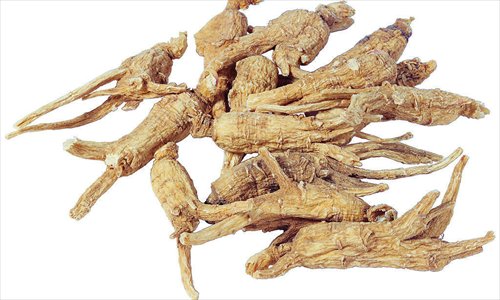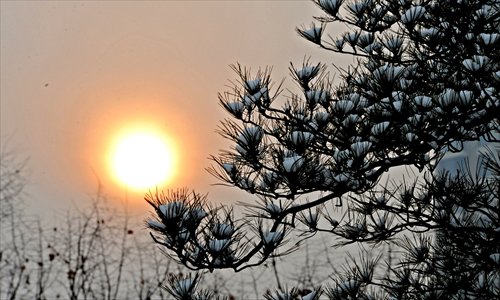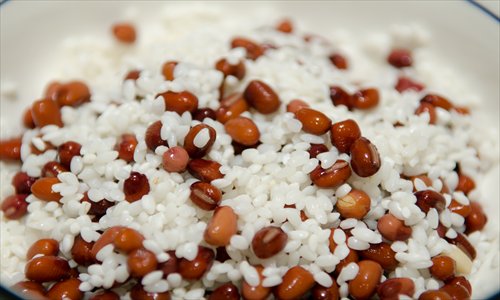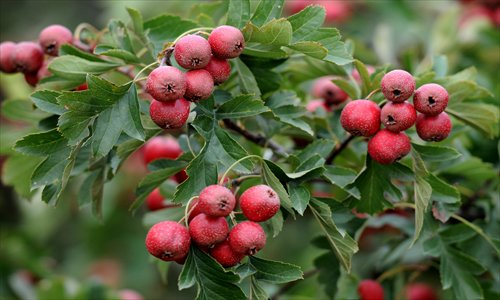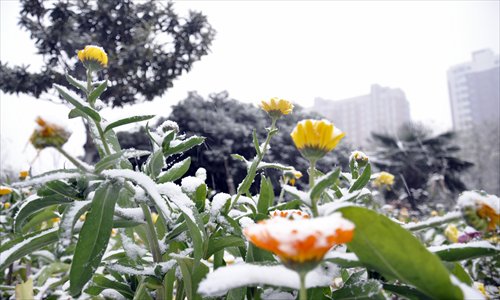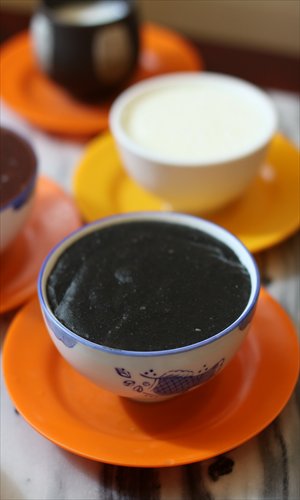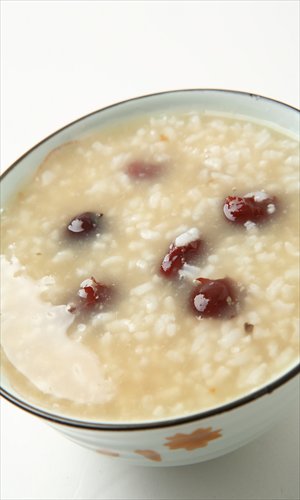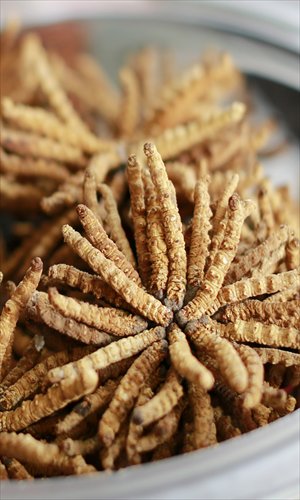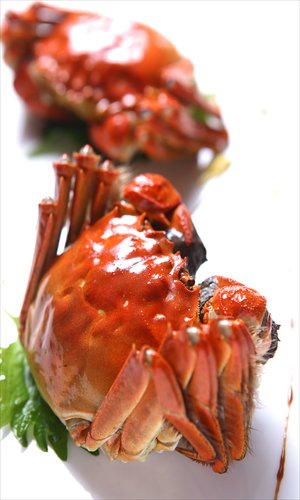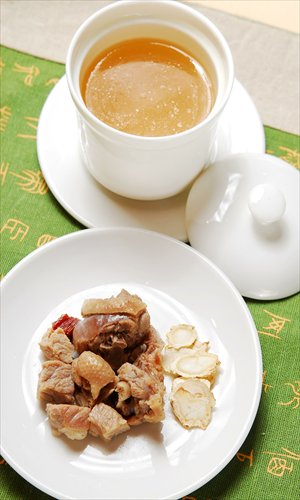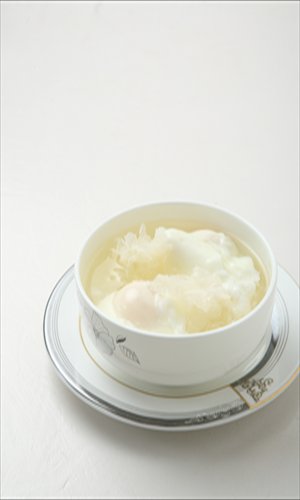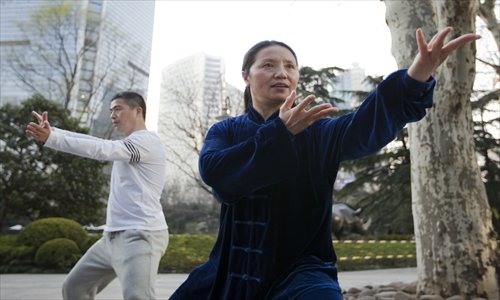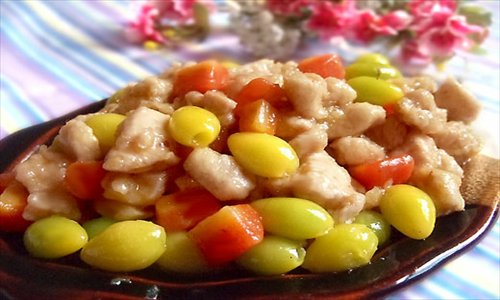Cold comforts
In the Chinese solar calendar, the "day of the slight cold" or xiaohan in Chinese, took place on January 5 this year. Xiaohan, usually falls between January 5 and 7, and is the 23rd solar period.
The 15-day health plan
Chinese people traditionally count nine-day periods after the Winter Solstice, the 22nd solar term which fell on December 21 this year. One folk song goes: "yijiu erjiu bu chu shou, sanjiu sijiu bing shang zou, wujiu liujiu yan he kan liu," which means that during the first two nine-day periods people are reluctant to expose their hands to the cold air, while during the third and the fourth nine-day periods people will "have to walk on icy roads." The song points out that during the fifth and sixth nine-day periods the weather turns warmer, and the "willow leaves begin to come out."
Solstice soothers
Recipes to savor during some of the coldest days of the year
Stick your neck out
As the 21st solar term in the traditional Chinese agricultural system, daxue (meaning “heavy snow”), falls on December 7 this year and heralds more freezing weather. The cold can easily cause problems with blood circulation and which can then lead to serious conditions like strokes, heart attacks and cerebral apoplexy.
In the soup
The wintry season is now entering December, and in the traditional Chinese calendar, it coincides with the solar term daxue, which means “heavy snow.” And this year, the solar period lasts from December 7 to 21.
The sunshine of my life
Xiaoxue, which means “light snow,” is the 20th term in the Chinese agricultural solar system. And as the end of the year is just around the corner, the arrival of xiaoxue usually gives people the feeling that the winter is well and truly here.
The winter of our content
This year, xiaoxue, (which means “light snow” in English) falls on November 22. And this particular period of the Chinese solar calendar coincides with Thanksgiving Day in the US.
A sporting chance
According to the Chinese agricultural solar system, lidong, which means “start of winter,” fell on November 7 this year. As the temperatures drop, it’s important for citizens to know how to keep healthy and warm during the long, chilly winter months.
What’s in store for winter?
Lidong, which falls on November 7 this year, is the first solar period of winter, and the 19th solar period of the year. In Chinese, the word li is a verb and means to begin or start. Lidong literally means “the start of winter.” However, in ancient Chinese, the word dong referred not only to winter but also to the “collecting” and “storing,” which happened during this period after the harvesting work of agricultural crops was finished. It also refers to finding suitable “storage” for animals and keeping them warm and safe during the winter.
Walk this way
Shuangjiang, which falls on October 23 this year, is the last solar term in autumn, and is also the 18th solar term of the year. In line with the English name of shuangjiang, “frost’s descent,” it implies that during this period temperatures will experience a sharp decline with the differences in daily temperatures becoming larger. Moisture in the air begins to condense into dew during the night and that dew turns into frost by morning.
As autumn leaves ...
Shuangjiang, which in English means “frost’s descent,” is the 18th solar term of the year, and the last one in autumn. Falling on October 24 this year (it can also occur on October 23), shuangjiang ushers in the beginning of winter as the climate gets considerably cooler.
Put your best feet forward
The 17th solar term of the traditional Chinese calendar is known as cold dew, or hanlu, and this year it fell on October 8. It means autumn is here and, especially, for the northeastern and northwestern areas of China, winter is just around the corner.
In from the cold
Among the 24 solar terms, hanlu or “cold dew,” is the first one that chronologically begins with the character for han, meaning “cold” in Chinese. This year, it falls on October 8. Just as the name suggests, the temperatures during this period are getting cooler all the time. The mildness of early autumn is now being replaced with the distinct chilliness of late fall.
Get crafty
Most city dwellers are familiar with hobby and craft classes such as cooking, pottery and toy-making. But have you ever thought of making perfumes, essential oils, or soap on your own? Global Times has found several such classes that may interest you.
Keep it moving!
Consecutive days characterized by cool air in the morning and at night, foretell the real beginning of autumn. Although liqiu (“autumn begins” occurring on August 7) literally means the beginning of autumn, for people living in the south of China the cool days of autumn usually only arrive around qiufen or the Autumn Equinox which this year falls on September 22.
Food for the Harvest Moon
Declining temperatures and sporadic, but heavy rainfalls are bringing a stronger feel of autumn to the city, and the next few days will see the arrival of qiufen, meaning “autumnal equinox” – the midpoint of autumn. This is the 16th solar term on the Chinese agricultural solar system, and falls on September 22 this year. The equinox means that on that day the sun reaches 150 degrees celestial longitude, and the daytime and nighttime last equally 12 hours.
The water margin
This Friday, September 7, sees the arrival of bailu, or “white dew.” This marks a transitional time from summer to autumn, where the temperatures are still generally warm during the day, hovering around 30 C for most of time. At night, however, temperatures can drop quite considerably. This disparity in the temperature widens further when it is raining. As an old saying in China goes, “don’t expose yourself outside during bailu.”
Dew date
Bailu, or “white dews,” will take place on September 7 this year. As the name of this solar term suggests, it is a period when the temperature remains generally warm during the day, while dropping considerably during the night. The moisture in the air condenses during the cold hours of darkness and the following morning droplets of dew can be clearly seen on the grass and leaves.
